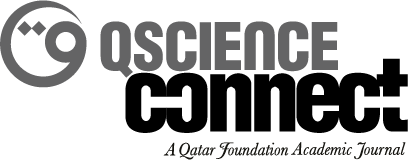-
oa Of Poets and Doctors
- Source: QScience Connect, Volume 2022, Issue Issue 3- Medical Humanities in the Middle East Conference, Aug 2022,
-
- 31 August 2022
Abstract
In this personal narrative, adapted from my memoir of my years in Doha, I present a digest of the educational philosophy that informed four years of my teaching at the Weill Cornell Medical College in Qatar, as WCM-Q was known when first established. As an author, artist, educator and practitioner of complementary alternative medicine who has worked with international students over many years, and in my therapeutic practice treated many clients from diverse backgrounds, I had much to bring to my teaching and to my position as Coordinator of the Writing Program in the college's Premedical Studies department. The years 2005 – 2009 were crucial in Qatar's development as an “education economy” and cosmopolitan crossroads, and I was eager to work with first and second year premed students on their way to our Medical Studies program—the first to grant American medical degrees anywhere overseas. It's not really so difficult for motivated, well instructed students to learn to write college level essays, but I also wanted these science-minded future doctors to learn what sorts of questions are asked in fields of the humanities. I wanted them to have a taste of what Socrates meant when he said, “The unexamined life is not worth living.” Such inquiry goes with learning the skills of close reading, literary analysis, and research methodology, which were the bases of my writing seminars. As well, in my course on literature and psychology, I introduced future doctors to the archetype of the shaman as wounded healer. I related this concept to my own undergraduate crisis that resulted in my choosing to become a poet rather than a doctor of veterinary medicine, and eventually to becoming certified as a hypnotherapist and establishing my private practice. Things might have changed somewhat since I left Qatar, but in this presentation I hope to inform my audience of what we started with at WCM-Q and how I succeeded with my students. I invite colleagues to consider how they approach the subjects of Narrative Medicine and Medical Humanities today to teach students in the Middle East.


